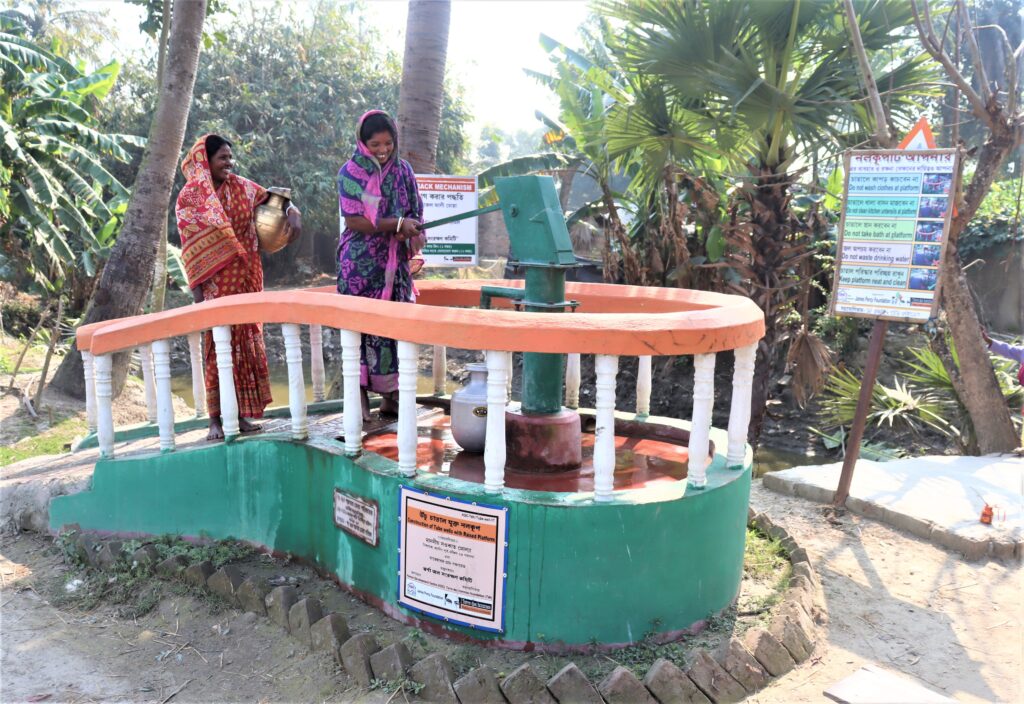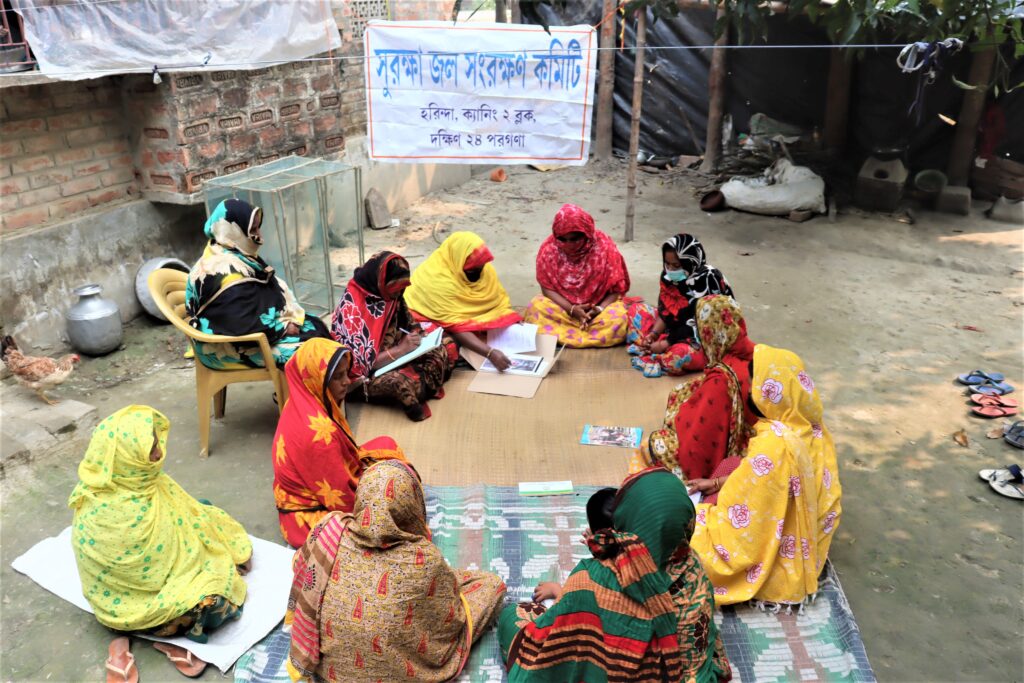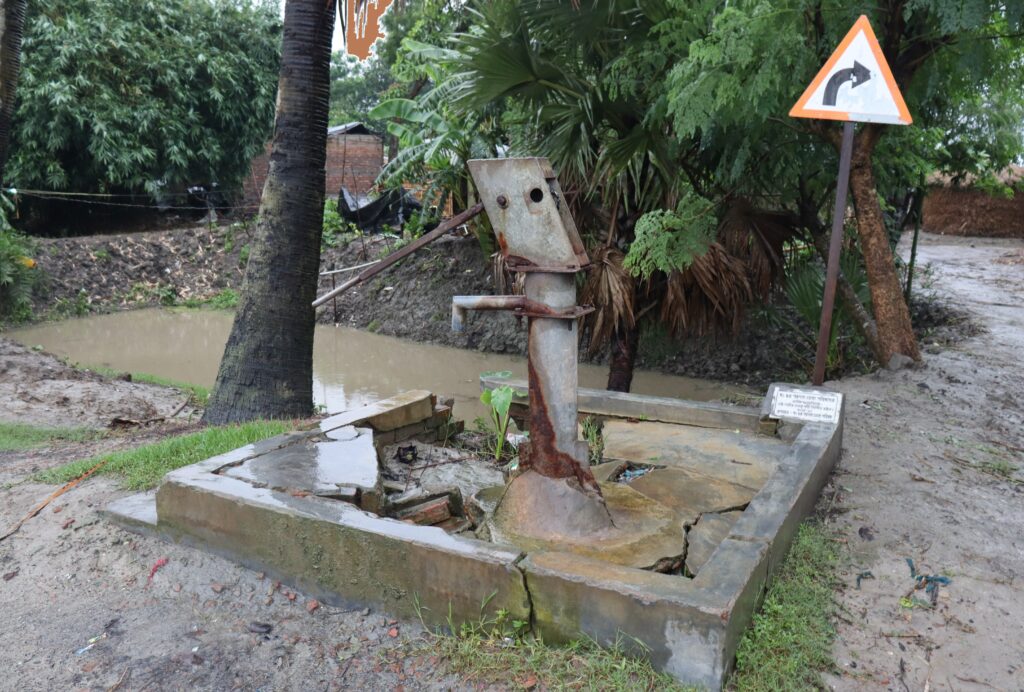31. May 2022
Authors and Photo Credits: Health and WASH Team, Terre des hommes, India[1]
Context
Terre des hommes (Tdh) in the framework of the Swiss Water and Sanitation Consortium (SWSC) has been improving the access to water, sanitation and hygiene (WASH) and the associated infrastructure in the flood-prone Canning-II Block in West Bengal since 2020. Tdh embedded the project into a community-based integrated health and WASH program which ensures the ownership of the project by the communities and authorities. The percentage of population with access to an improved water source during floods, i.e. a water source constructed above the maximum flood level, significantely increased from 4% to 75% since the project’s start.
In India, the local self-government institutions known as the Panchayati Raj Institutions (PRIs) are responsible for the construction of drinking water facilities in rural areas. Canning II Block is a disaster-prone and low-lying area in the Sundarbans region and is waterlogged during the monsoon season every year. The handpumps constructed by the PRIs often get flooded and are not maintained. As a result the groundwater is commonly contaminated which in turn leads to health hazards in the community.
Flood Resilient Plinth Raised Handpumps – Using Participatory Learning and Action
To ensure uninterrupted access to safe drinking water – even during floods – and to address community demand across 20 villages, Tdh supported the construction of 10 flood resilient plinth raised handpumps. To create ownership of the handpumps, users committees were mobilized to generate a community contribution which amounted to 5000 INR or 63 CHF for each handpump (5% of the total capital cost).
Local Government’s Involvement and Scale-up of the Model
When cyclone Amphan made landfall in the project area in 2020, the existing handpumps were submerged while the raised plinth handpumps that were installed by the project remained intact and in use. This generated a local demand in the community for flood resilient raised handpumps. After the cyclone, key members of the local self-government (PRIs) visited the handpump sites interacting with the water user committees and the project team members. They conducted meetings with the government representatives to discuss how the approach could be replicated. As a result of extensive discussions and repeated meetings, the local government officials were convinced and agreed to support 85% of the total cost for the construction of an additional 20 handpumps in the form of drilling and material costs which amounted to 32,000 CHF. The community contribution which was initiated to ensure the ownership of the model remained consistent for the construction of all the handpumps.

Strengthening Community Capacities for Operation and Maintenance
A total of 30 water user committees were formed, trained, provided with tools and linked with the local self-government institutions to ensure routine operation and maintenance of the handpumps. The experience in Sundarbans has shown that this model can play an effective role in providing safe drinking water in flood-prone areas.

Earlier, we had only one handpump in our village of 150 households. It was built by the local self-government institutions but within six months, the platform completely broke and the water became contaminated. With no alternative, we were forced to continue using that water. In those days, we had increased cases of diarrhoea and vomiting in the village. Now we have raised handpumps and we have access to safe drinking water even during heavy monsoon rains. As a member of the water user committee, it is important for me to make sure that our handpump is maintained well and functional.”
Swagata Sardar, Secretary of Jharna Water Users Committee at Hediya village, Canning II, South 24 Parganas
[1] Involved team members:
Runa Nath, Program Manager Health and WASH
Tanmoy Das, Program Officer Health
Sabyasachi Mitra, Program Officer WASH
Deepali Savyasachi, MCD Fundraising & Communications Manager
